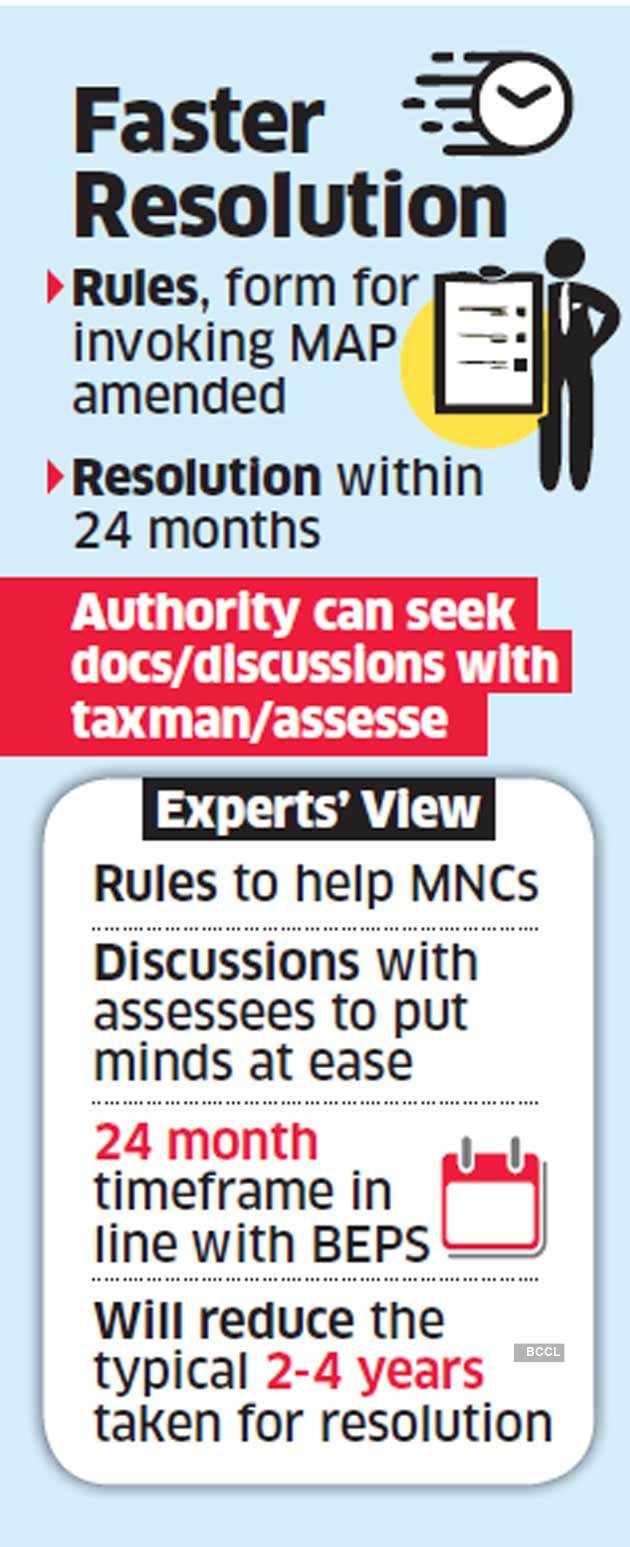The government has amended income tax rules as per which Indian authorities would “endeavour” to resolve mutual agreement procedure (MAP) disputes within a timeframe of 24 months, a move aimed at speedy settlement of cases of multinational corporations that have opted the alternative dispute resolution process.
The Central Board of Direct Taxes (CBDT) has amended Rule 44G dealing with application and procedure for giving effect to MAP agreement, and also revised Form 34F with respect to making application to the competent authority for invoking MAP.
MAP is an alternative dispute resolution process under the tax treaties, under which competent authorities of two countries enter into discussions to resolve tax-related disputes. As many as 600 tax disputes were resolved under MAP between April 1, 2014, and December 31, 2018.

“The competent authority in India shall endeavour to arrive at a mutually agreeable resolution of the tax disputes…in accordance with the agreement between India and the other country or specified territory within an average time period of twenty-four months,” according to the amended income tax rule.
It also states that if a resolution is arrived, the same shall be communicated to the assessee, who shall communicate his acceptance or non-acceptance within 30 days. Upon acceptance of the resolution, the assessee shall withdraw any appeal filed in this regard and pay the tax determined by the assessing officer after giving effect to the resolution.
Consulting firm AKM Global Tax Partner Amit Maheshwari said MAP proceedings are increasingly becoming popular with multinational corporations (MNCs) although the time taken to conclude them is an issue and this was recognised in the recently released peer review report.
“The competent authority has to now endeavour to complete it in the recommended two-year period for settlement of MAP disputes. Post this amendment, with India not going in for mandatory binding arbitration, MAP will increasingly be used by MNCs to resolve contentious issues,” Maheshwari added.
Nangia Andersen LLP Director Sudin Sabnis said MAP is aimed at bringing in certainty through an alternative dispute resolution mechanism.
“The indicative timeframe of average 24 months to resolve dispute under MAP is a highlight of the new rules which would encourage taxpayers to hope for a speedy dispute resolution mechanism. This is also in line with Action 14 of the BEPS Project prescribing a standard to endeavour to resolve MAP cases in 24 months,” Sabnis added.
The revised Form 34F seeks to now also include actions of authorities that are not in accordance with the terms of the agreements as well as details of remedy along with documentary evidence.
“While India remains embroiled in major international tax and transfer pricing cases, the new rules display the intent of the government to achieve certainty and endeavour to bring faster resolution in place of long-drawn traditional litigation process,” Sabnis added. JD HRS
Source : Economic Times
